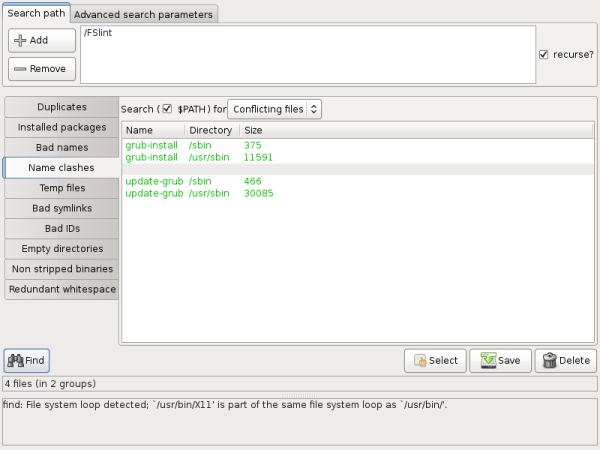Name Clashes
Another form of file lint involves files that have identical or similar names. This usually does not cause any significant problems for the user other than slight inconvenience. Finding files with name clashes can be of great help when dealing with multiple versions of files. It is not uncommon to find a school or work document in several locations, each at a different revision stage of the document. When all of these are found and brought to your attention, then you may decide to delete all but the final version of the document.
Graphical Interface
When the 'Search $PATH' check box is enabled and the 'Conflicting files' drop box is selected, FSlint will search the user's $PATH for files that share a common name. Each Linux system has $PATH setting. The $PATH allows programs to find each other and the $PATH should only be modified by advanced users. Be extremely careful when searching the system $PATH as required system settings may be listed, and damage to the system can occur if these system files are deleted or modified.
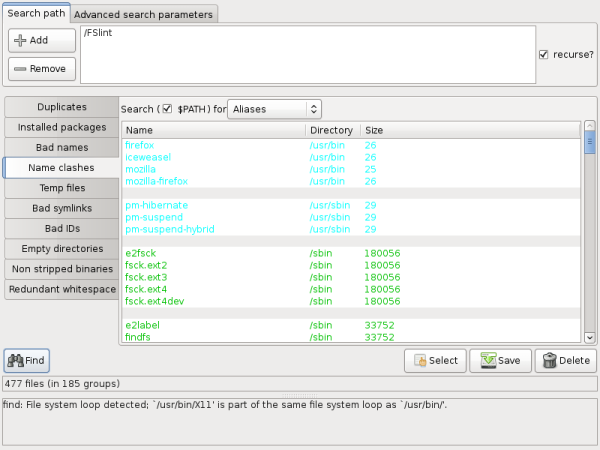 Similarly when the "Aliases" drop box is selected FSlint will search for any aliases that are in the user's $PATH. Aliases can be thought of as shortcuts to various Linux programs. Once again, be aware that damage to the system can occur if extreme care is not taken to ensure the proper items are deleted.
Similarly when the "Aliases" drop box is selected FSlint will search for any aliases that are in the user's $PATH. Aliases can be thought of as shortcuts to various Linux programs. Once again, be aware that damage to the system can occur if extreme care is not taken to ensure the proper items are deleted.
When the "Search $PATH" checkbox is not selected, there are four options in the drop box, and FSlint will search the path given in the "Search path" tab.
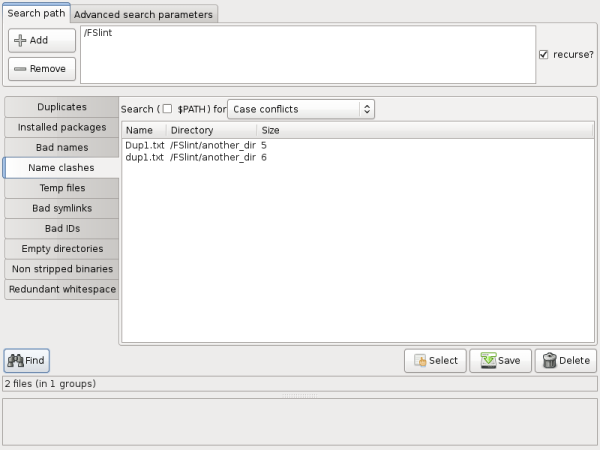
The first is "Case conflicts". FSlint will look for files that share the same name differing only in capitalization.
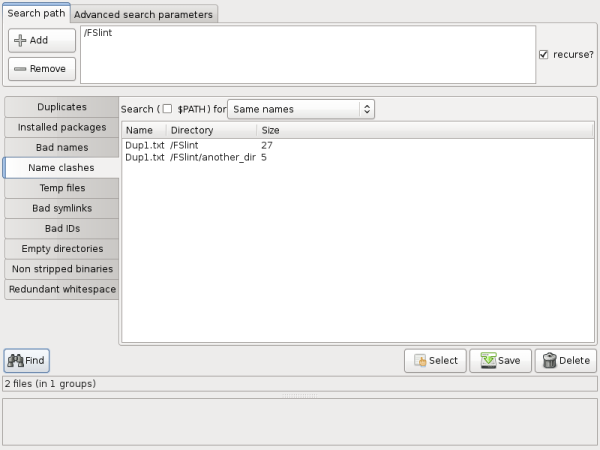
The second is "Same names". FSlint will look for files that share the exact same name, but are located in different directories within the search parameters.
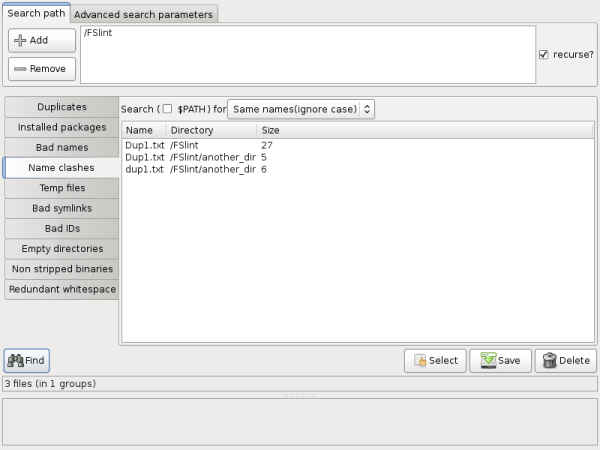
The third is 'Ignore case'. FSlint will look for all files in all directories and sub directories that share the same name regardless of capitalization.
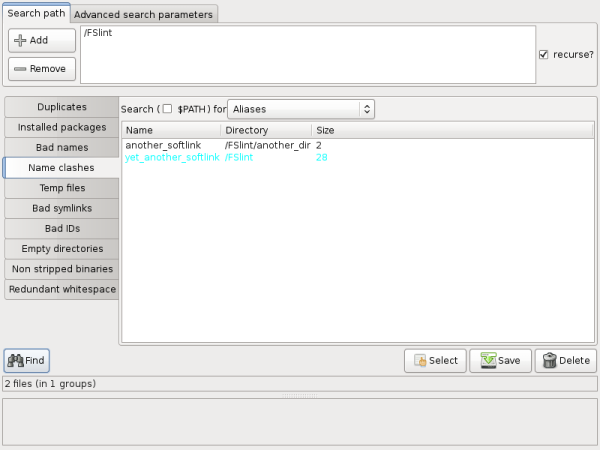
The last is "Aliases". FSlint will look for all aliases, soft or hard linked.
Command Line Interface
The command line interface to this utility is 'findsn'. This utility will be found in the installation directory of FSlint.
$ /usr/share/fslint/fslint/findsn --help find (files) with duplicate or conflicting names. Usage: findsn [-A -c -C] [[-r] [-f] paths(s) ...] If no arguments are supplied the $PATH is searched for any redundant or conflicting files. -A reports all aliases (soft and hard links) to files. If no path(s) specified then the $PATH is searched. If only path(s) specified then they are checked for duplicate named files. You can qualify this with -C to ignore case in this search. Qualifying with -c is more restrictive as only files (or directories) in the same directory whose names differ only in case are reported. I.E. -c will flag files & directories that will conflict if transfered to a case insensitive file system. Note if -c or -C specified and no path(s) specifed the current directory is assumed.






